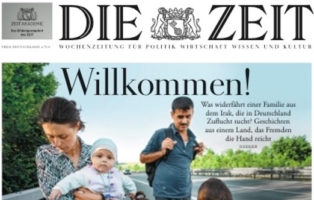Fierke, Karin
Theme-Group Fellow

Reading and Narrating the Refugee/Migration Crisis
Research Question
How are migrants/refugees streaming across Europe being constructed in the press and in the political narratives of both transit and destination countries? What are the dierent historical, narratives, analogies and metaphors that are intersecting in responses to the crisis and what are the implications for the dierent receiving states, for relations between states, and for the future of the European Union?
Project Description
European publics confront daily media reports of tens of thousands of people fleeing war in Syria, among others, and travelling great distances by foot or sea in life‐threatening conditions. The spectre of, on the one hand, Hungary building walls to keep migrants out and, on the other hand, Germany opening its doors to actively welcome refugees, raises a question not only about the different narratives in which this ‘crisis’ is cast, but also the emergent potentials in the larger European context or in response to the war in Syria. The frequent shifts in policy by different states, the most notable in response to the photo of Aylan Kurdi, highlights the relationship between changing media narratives and changes in policy and practice. In addition, the use of social media to mobilize forms of humanitarian care or violent resistance also highlights a question about the relationship between traditional and social media. Within this theme group we aim to explore this relationship and its impact from different disciplinary perspectives including International Relations, psychology, journalism and combine them through different methodologies, discourse, and contemporary visual analysis. We also aim to explore producing a pilot for an interactive game that illustrated the outcomes of decisions made by the different actors involved in the refugee crisis (refugee, NGO activist, reporter, politician).
-

-
 Fellow
FellowFarmanfarmaian, Roxane
-
 Fellow
FellowFuták-Campbell, Beatrix